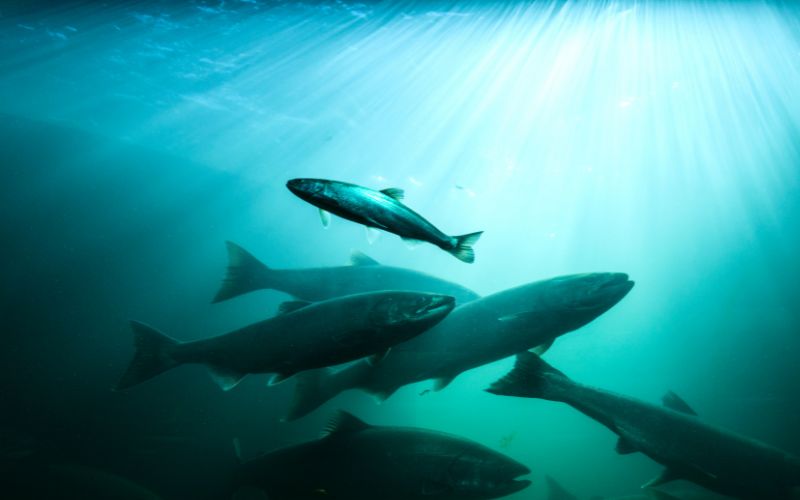
- Details
- By Native News Online Staff
Pacific Northwest hatcheries that produce Pacific salmon and steelhead just received a $240 million boon, thanks to Thurday’s announcement from the U.S. Departments of the Interior and Commerce.
The Interior Department’s Bureau of Indian Affairs (BIA) partnered with the Commerce Department’s National Oceanic and Atmospheric Administration (NOAA) to deliver funding to regional tribes, with the aim of restoring salmon in the Columbia River Basin, according to a July 25 press release.
“Since time immemorial, tribes in the Pacific Northwest have relied on Pacific salmon, steelhead and other native fish species for sustenance and their cultural and spiritual ways of life,” said Secretary Deb Haaland in the announcement. “This funding will help us deliver historic investments from the President’s Investing in America agenda that will empower Indigenous communities and safeguard resources they have stewarded since time immemorial.”
Millions of fish are produced in tribal hatcheries each year, accounting to the Department, driving tribal employment and subsistence, nutrition for tribal families, and the preservation of cultural traditions and recreation. As habitat is restored and reconnected to better support natural fish production, hatcheries will remain a critical tool to supplement fish for tribal and non-tribal fisheries, as well as other salmon-dependent animals and ecosystems in the Pacific Northwest.
As of yesterday’s announcement, an initial $54 million was made available to 27 tribes in the Pacific Northwest and Alaska to address current hatchery facility maintenance and modernization necessities, and to support tribal capacity needs. The remaining funding will be made available competitively to help tribes address the long-term viability, the Department said.
More Stories Like This
NCAI Passes Two Emergency Resolutions on Immigration Enforcement ActivitiesChickasaw Lighthorse Police Officer named Indian Country Law Enforcement Officer of the Year
Indian Gaming Association Rallies Broad Coalition Against Sports Event Contracts It Calls Illegal Threat to Tribal Sovereignty
Navajo Resources and Development Committee Issues Notice on Livestock Inspection Requirements
American Prairie, Tribal Coalition Files Protest Over Rescinded Grazing Rights
Help us defend tribal sovereignty.
At Native News Online, our mission is rooted in telling the stories that strengthen sovereignty and uplift Indigenous voices — not just at year’s end, but every single day.
Because of your generosity last year, we were able to keep our reporters on the ground in tribal communities, at national gatherings and in the halls of Congress — covering the issues that matter most to Indian Country: sovereignty, culture, education, health and economic opportunity.
That support sustained us through a tough year in 2025. Now, as we look to the year ahead, we need your help right now to ensure warrior journalism remains strong — reporting that defends tribal sovereignty, amplifies Native truth, and holds power accountable.
 The stakes couldn't be higher. Your support keeps Native voices heard, Native stories told and Native sovereignty defended.
The stakes couldn't be higher. Your support keeps Native voices heard, Native stories told and Native sovereignty defended.
Stand with Warrior Journalism today.
Levi Rickert (Potawatomi), Editor & Publisher


